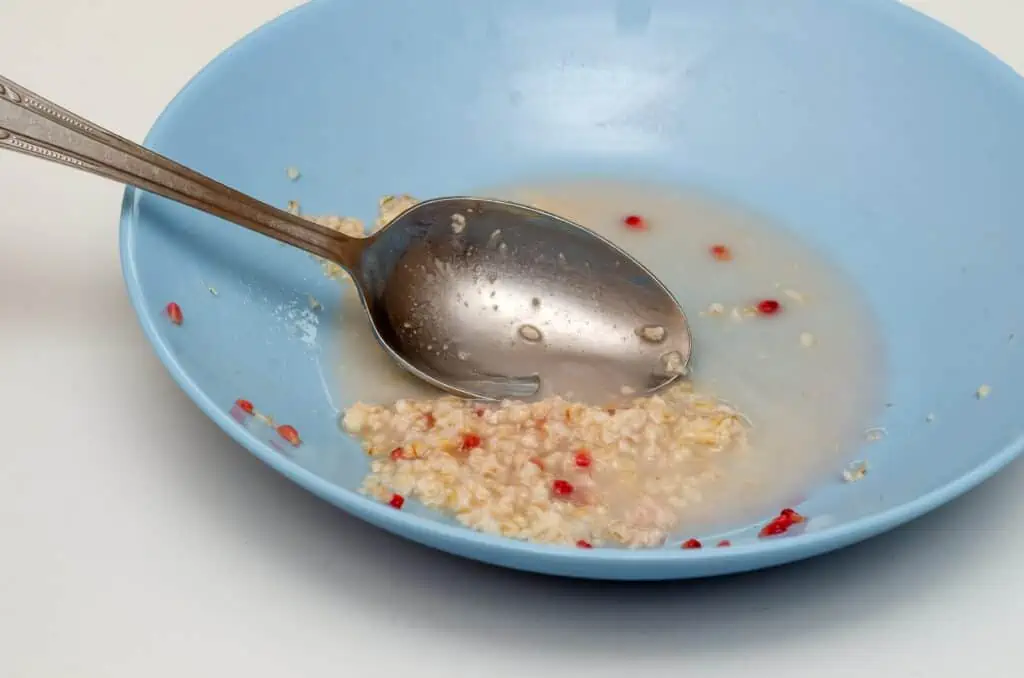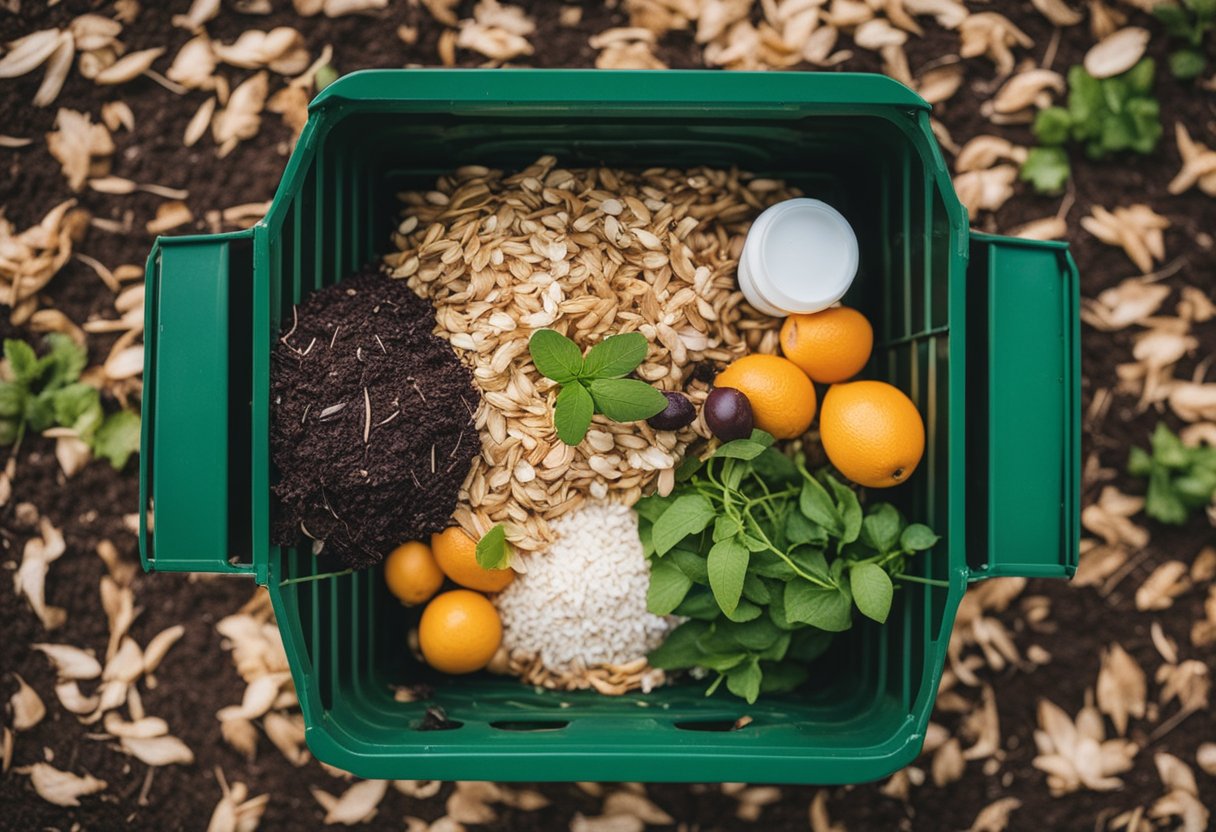As an Amazon Associate I earn from qualifying purchases.
At A Glance
Yes, you can compost oats and oatmeal as they are organic materials that will break down over time. Whether raw or cooked, both can be added to your compost pile. However, if your oatmeal has additives like milk, butter, or sugar, it might attract unwanted pests to your compost pile.
Composting is a sustainable way to manage waste and reduce greenhouse gas emissions. It is an excellent way to recycle organic materials, including food scraps, yard waste, and even paper products. However, not all organic materials are suitable for composting. One common question that people ask is whether you can compost oats.

The good news is that oats can be composted! In fact, adding them to your compost pile can provide a variety of benefits for both your garden and the environment. Oats are high in nitrogen and carbon, which makes them an excellent source of food for microorganisms in compost piles. As these microorganisms break down the oats, they release nutrients that can help your plants grow.
However, it is important to note that not all types of oats are suitable for composting. Instant or flavored oats, for example, may contain additives that can be harmful to your compost pile. It is best to stick with plain, uncooked oats to ensure that you are composting a safe and healthy material. With that said, let’s take a closer look at the benefits of composting oats and how to do it properly.
Understanding Composting
Composting is a natural process that transforms organic materials into nutrient-rich soil. It is a sustainable way to manage waste and reduce greenhouse gas emissions. Composting is a simple process that can be done in your own backyard.
The composting process involves microorganisms breaking down organic materials into smaller components. The microorganisms need air, water, and moisture to thrive. The decomposition process generates heat, which helps to kill off any harmful pathogens or weed seeds.
To create a healthy compost pile, you need to balance the carbon and nitrogen levels. Carbon-rich materials, such as dry leaves or straw, provide energy for the microorganisms. Nitrogen-rich materials, such as food scraps or grass clippings, provide protein. A good compost pile should have a moisture level of around 40-60%.
Composting is a great way to reduce food waste and benefit garden health. By composting organic materials such as food scraps and yard waste, you can create a rich, nutrient-dense soil amendment that can improve the health of your garden. Composting also reduces the need to water your garden as often and can cut back on the amount of waste you send to the landfill by about 20%.
In summary, composting is a sustainable way to reduce waste and benefit your garden. It involves the decomposition of organic materials by microorganisms and requires a balance of carbon and nitrogen levels, moisture, and air. Composting is an excellent way to create a nutrient-rich soil amendment that can improve the health of your garden.
Types of Compostable Materials

Greens and Browns
Composting is all about finding the right balance between “greens” and “browns.” Greens are nitrogen-rich materials that help speed up the decomposition process, while browns are carbon-rich materials that provide structure to the compost pile. Some common examples of greens include grass clippings, vegetable and fruit scraps, coffee grounds, and tea leaves and filters. Browns include items such as dried leaves, straw, and cardboard.
Other Compostable Items
In addition to greens and browns, there are many other items that can be composted. These include cotton and wool, kitchen scraps, yard waste, manure, newspaper, bread, corn cobs, dryer lint, cereal and grains, rice, dust, sawdust, wood chips, nut shells, eggshells, hair, pine needles, and hay.
What Not to Compost
While many items can be composted, there are some that should be avoided. These include meat, bones, grease, cheese, pesticides, oils, fish, colored paper, cat litter, treated wood, and coal or charcoal. These items can either attract pests, produce unpleasant odors, or contain harmful chemicals that can harm plants.
Composting Oats
Oats are a great addition to a compost pile. They are high in nitrogen and carbon, which makes them an excellent source of food for microorganisms in the compost pile. Soaking and grinding oats can aid in their decomposition process by breaking down their tough outer layer and exposing more nutrients to bacteria and fungi. However, it’s important to mix oats with other green materials like grass clippings or food scraps to ensure proper decomposition.
Benefits of Composting
Composting has many benefits, including reducing waste, providing nutrients for plant growth, and reducing methane emissions from landfills. By composting, you can also save money on fertilizer and reduce your carbon footprint.
Common Composting Mistakes
One common mistake when composting is not having enough surface area for air to circulate. This can slow down the decomposition process and cause unpleasant odors. Another mistake is not properly balancing greens and browns, which can also slow down the process. It’s also important to avoid adding meat, bones, and other items that can attract pests or produce unpleasant odors.
Frequently Asked Questions
Some frequently asked questions about composting include: How often should I turn my compost pile? (Answer: every few weeks). Can I compost old oats or oatmeal? (Answer: yes). How long does composting take? (Answer: anywhere from a few months to a year, depending on the materials and conditions).
Overall, composting is a great way to reduce waste and provide nutrients for plants. By following these guidelines and avoiding common mistakes, you can create a healthy and productive compost pile.
